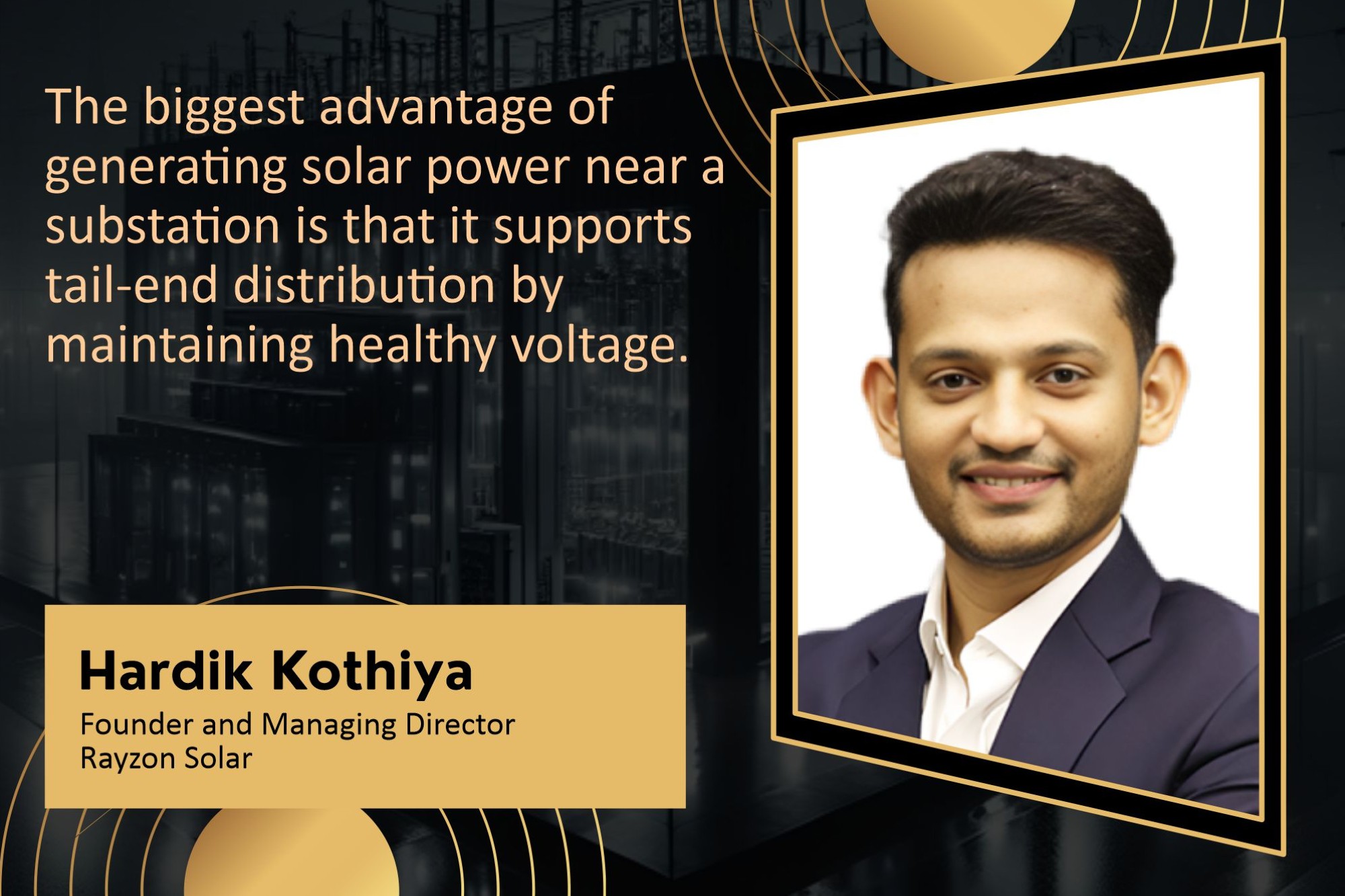Solar power adoption in substations boosting grid efficiency
By Staff Report April 25, 2025 4:14 pm IST
By Staff Report April 25, 2025 4:14 pm IST

The biggest advantage of generating solar power near a substation is that it supports tail-end distribution by maintaining healthy voltage; otherwise, the voltage gets dropped, leading to poor quality and disruptions in the vicinity.
The use of solar power systems in substations has increased, enhancing grid efficiency and stability. This rise in solar adoption has improved overall reliability and reduced power disruptions, benefiting local communities economically and socially.
Recent innovations, such as floating solar plants, offer a sustainable solution for flood-prone areas by ensuring continued power generation even during floods. Companies like RAYZON Solar are at the forefront of this innovation, using cutting-edge technologies like N-TOPCon cells. According to Hardik Kothiya, the company’s founder, easy financing options and supportive government policies have significantly boosted solar energy deployment and manufacturing in India, positioning the country as a global leader in solar technology. Let us hear more from him.
How does solar power near substations enhance voltage stability and support tail-end distribution?
Solar Power systems are very popularly used to feed power at substations as they offer multiple advantages. The biggest advantage of generating solar power near the substation is supporting tail-end distribution by maintaining healthy voltage where, otherwise, the voltage gets dropped, leading to poor quality and disruptions in the vicinity. As the demand from the local feeders can be met in the daytime by the generated solar energy, it helps improve grid efficiency and, more importantly, overall stability. This improved quality and power availability at the tail end can help enhance economic activities in the area, leading to improved living and earnings.
How are innovations by Rayzon Solar enhancing energy efficiency and sustainability?
At RAYZON Solar, we are at the forefront of innovation, constantly pushing the boundaries of solar technology to enhance energy efficiency and sustainability. With advancements in solar modules like N-TOPCon cell technology, higher wattages, improved negative temperature coefficients and reduced annual degradation, our modules deliver superior performance even in challenging conditions. These innovations reduce the cost per watt and maximise energy output per square meter, making solar power more accessible, affordable and impactful. By integrating cutting-edge materials and smart manufacturing processes, we ensure that our solutions contribute meaningfully to a greener, more sustainable future.
How do floating solar power plants support energy security and operational stability in flood-prone regions?Floating solar power plants have revolutionised space utilisation on still water, which otherwise would have been mounted on land parcels, removing the possibility of its usage for agriculture or any other purpose. Because of the nature of its installation, there is a possibility that floating solar power plants can generate power even during flood situations. This means substations built in flood-prone areas, typically designed to work in partially submerged or flood-prone areas, can remain actively operational even if conventional power gets disrupted. Together, they form a smart, sustainable solution for regions vulnerable to climate-induced flooding, supporting energy security and environmental protection.
How have easy financing and government policy interventions boosted India’s solar energy deployment and manufacturing?
Today, solar energy generation is not only cleaner but also an even cheaper source of energy than conventional power generation. With the availability of easier financing mechanisms, the deployment of solar power has increased tremendously. Financing is easily available through public/private banks, non-banking financial institutions (NBFCs), and government funding agencies like IREDA/REC, which have given momentum to the deployment of solar energy quickly.
This increased demand and market created by the central government through policy interventions with ease of funding has given ample scope for manufacturers to enhance their capacities and supply high-quality solar modules, ultimately strengthening the country’s position as a global solar manufacturing hub.
We use cookies to personalize your experience. By continuing to visit this website you agree to our Terms & Conditions, Privacy Policy and Cookie Policy.